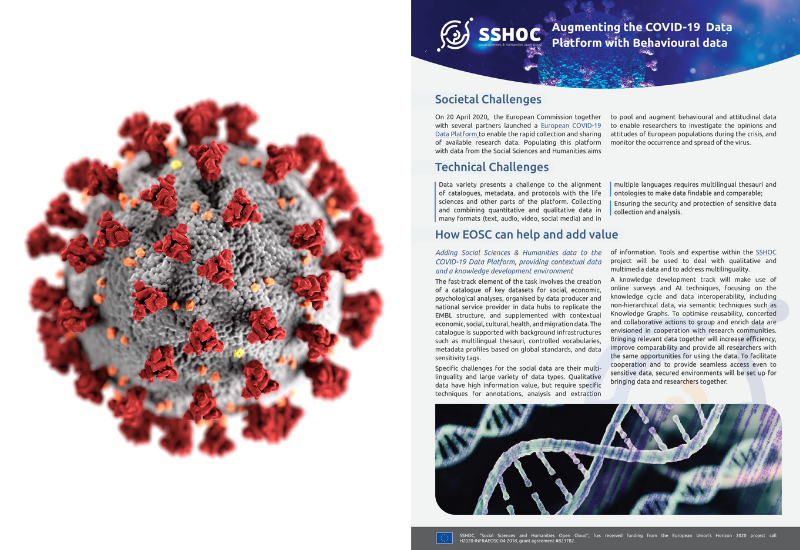
- Social Sciences & Humanities Open Cloud
Augmenting the COVID-19 Data Platform with Behavioural data

On 20 April 2020, the European Commission together with several partners launched a European COVID-19 Data Platform to enable the rapid collection and sharing of available research data.
Data variety presents a challenge to the alignment of catalogues, metadata, and protocols with the life sciences and other parts of the platform. Collecting and combining quantitative and qualitative data in many formats (text, audio, video, social media) and in multiple languages requires multilingual thesauri and ontologies to make data findable and comparable.
How EOSC can help and add value
Adding Social Sciences & Humanities data to the COVID-19 Data Platform involves the creation of a catalogue of key datasets for social, economic, psychological analyses, organised by data producer and national service provider in data hubs to replicate the EMBL structure, and supplemented with contextual economic, social, cultural, health, and migration data.
Specific challenges for the social data are their multilinguality and large variety of data types. Qualitative data have high information value, but require specific techniques for annotations, analysis and extraction of information. Tools and expertise within the SSHOC project will be used to deal with qualitative and multimedia data and to address multilinguality.
Bringing relevant data together will increase efficiency, improve comparability and provide all researchers with the same opportunities for using the data. To facilitate cooperation and to provide seamless access even to sensitive data, secured environments will be set up for bringing data and researchers together.
More information:
Augmenting the COVID-19 Data Platform with Behavioural data:
Read the previous Use Case:
